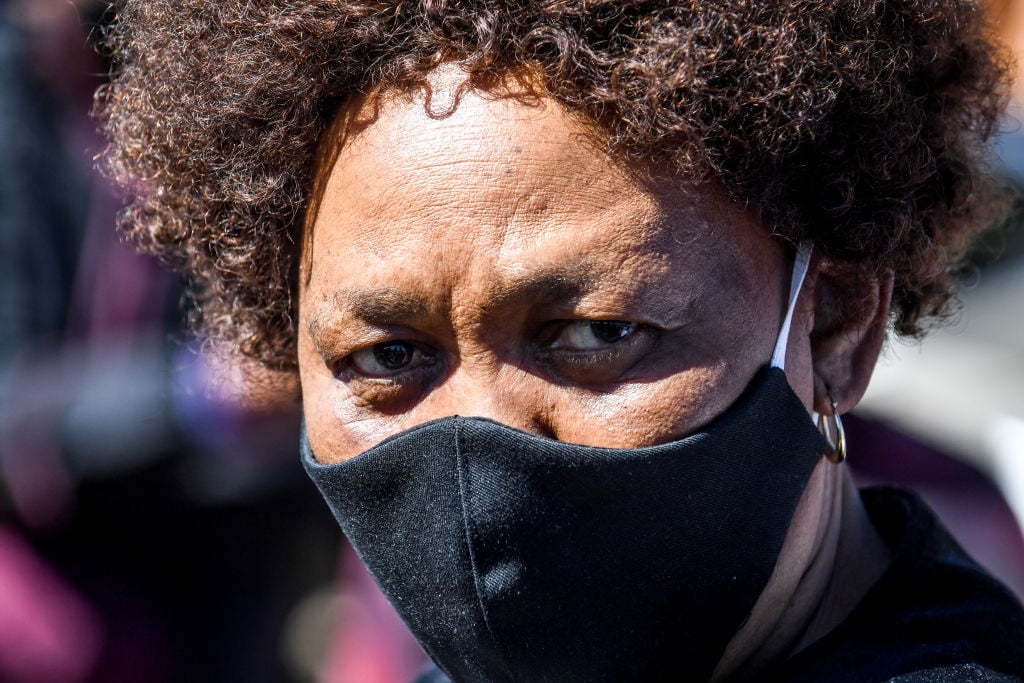


Basic Education Minister Angie Motshekga.
Sydney Seshibedi/Gallo Images via Getty Images
- Around 16 000 teachers across the country have underlying health conditions – a Covid-19 risk factor.
- Basic Education Minister Angie Mothshekga says the number of educators who work from home will be finalised.
- The reopening of schools and a surge in Covid-19 cases has been fiercely debated since schools opened for Grade 7s and 12s.
Just over 16 000 teachers have underlying health conditions, placing them at higher risk should they contract Covid-19, Basic Education Minister Angie Motshekga has revealed, as the stand-off between unions and government escalates over whether schools must remain open.
In a written parliamentary question, the DA’s Nomsa Marchesi asked Motshekga for details on the total number of teachers who have declared, since 1 June, that they suffer from comorbidities.
In response, Mothskekga said: “As at 23 June, 16 168 educators had declared comorbidities. The processing of applications is ongoing, and therefore the numbers are not final”.
Motshekga said the number of educators who work from home, would be finalised once the process of approving and granting all concessions had been completed.
“Collective Agreement 1 of 2020 provides for a concession for educators employed in terms of the Employment of Educators Act, 1998 (EEA), who are at risk in terms of the listed Covid-19 risk factors. The concession provides for measures to accommodate such educators in the workplace or working from home. Therefore, not all educators will work from home. The work that the educators working from home perform, depends on the nature of work and the availability of resources or tools of trade. Therefore, the work could range from conducting classes remotely to basic level preparing lesson plans, all within the official job description of the educator,” the minister said.
READ | New lockdown regulations: Pupils should not be sent home alone if they do not have a mask
She said that, where needed, a substitute would be provided.
“Provision of a substitute, and the type of a substitute provided, will depend on the extent of work the educator at home is able to accomplish. This may range from a fully qualified substitute to fully replace an educator at home, to a teacher aid or assistant that will act under the guidance of the educator at home, or another educator present at school,” she said.
News24 reported that schools and a surge in Covid-19 cases have been a talking point since their reopening on 8 June, when most Grade 7 and 12 pupils returned to their classrooms.
Teachers’ unions, many parents and some experts were up in arms over the reopening of schools at a time when Covid-19 cases are increasing daily.
Protests in many parts of Cape Town and Johannesburg saw calls for schools to remain closed become louder as pupils and teachers tested positive across the country.
The Western Cape and Gauteng were the worst affected.
Various organisations, including Mmusi Maimane’s One South Africa Movement (OSAM) and teachers’ union Sadtu, have been calling for schools to close.
OSAM and Maimane approached the courts, but were unsuccessful in their bid to have schools closed.
The country’s largest teacher union Sadtu on Tuesday announced it had resolved that schools be closed during this period.
The National Professional Teachers’ Organisation of SA (Naptosa) has also been calling for schools to be closed.

